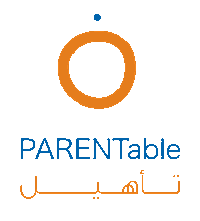
Definition of Multilingualism
Back to Multilingualism
- 1 -
At The Language Level
In academia, we distinguish between internal multilingualism and external multilingualism.
Internal Multilingualism
Internal multilingualism refers to the fact that you can find many different ways of speaking even within one single language. There are regional differences that make up the dialects of a language. There are social differences: The elderly talk differently than teenagers, a farmer might use different words than a web designer who lives in a big city would. Yet the way we talk also depends on where we are, whom we speak to, and what we want to achieve. These differences and variations within one language are called "internal multilingualism."
External Multilingualism
External multilingualism is present whenever more than one language is used. This is what most people understand by multilingualism. However, it is not always easy to distinguish one language from another. Why do we distinguish Swedish and Norwegian, two languages that are very similar, yet categorize the way a person in Morocco and a person in Dubai speak both as Arabic? A common saying in linguistics is that a language is “a dialect with an army:” What makes a language a language depends to a large extent on the political circumstances, and less on some inherent qualities.
- 2 -
Individual Bi- or Multilingualism
Individuals are bi- or multilingual.
Academia distinguishes between different ways of acquiring or learning another language.
Bilingual First Language Acquisition
If the parents speak different languages, the child acquires both languages at once while growing up. Linguists call this bilingual first language acquisition. If you and your partner speak different languages, your partner should use their language with your child while you should use yours. That is the principle "one parent, one language"; your child might mix the languages a bit at first but will be able to separate them very soon. Your child will benefit the whole life from this.
Second Language Acquisition
Second language acquisition refers to the situation when someone acquires another language in a context where people use it in everyday life. If you speak Arabic at home, yet German or Italian is the language of the society you live in, you and your children acquire this language as a second language. You will receive some formal education, yet you and your children will be exposed to German or Italian whenever you are outside of the house, and you have to master this language very soon to communicate with others.
Foreign Language Learning
Foreign language learning refers to the situation when someone learns another language in a classroom where people do not speak it in general. For example, you learn English, French, or Mandarin as foreign languages in Turkey or Spain. Although you receive less input, it might be less stressful to learn a language as a foreign language than as a second language because the foreign language classroom is a bit of a shelter.

